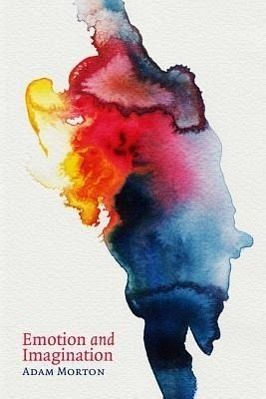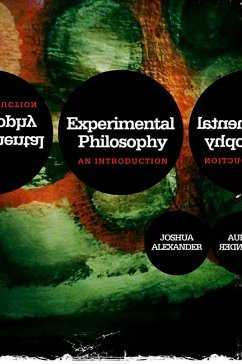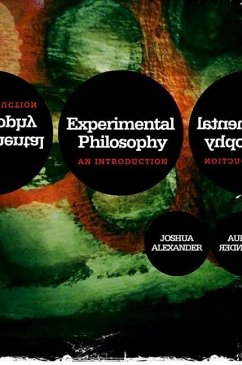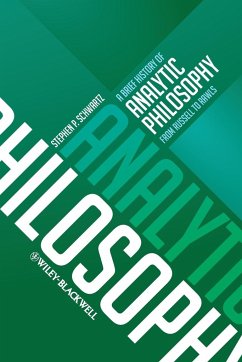
Emotion and Imagination
Versandkostenfrei!
Versandfertig in über 4 Wochen
61,99 €
inkl. MwSt.
Weitere Ausgaben:

PAYBACK Punkte
31 °P sammeln!
'Friends of Adam Morton's work will find familiar strengths in this essay in moral psychology: detailed attention to peculiarities of cases and a hostility to easy formulations, matched by lucid arguments that keep the general aim in view. He has surprising things to say about imagining; mice do it, apparently. But we, unlike mice, can use imagination to help to shape our own emotions, and hence to structure our own moral lives. All in all, this is a splendid attempt to think through the complex issue of what the imagination can and cannot do for us.' Gregory Currie, University of Nottingham '...
'Friends of Adam Morton's work will find familiar strengths in this essay in moral psychology: detailed attention to peculiarities of cases and a hostility to easy formulations, matched by lucid arguments that keep the general aim in view. He has surprising things to say about imagining; mice do it, apparently. But we, unlike mice, can use imagination to help to shape our own emotions, and hence to structure our own moral lives. All in all, this is a splendid attempt to think through the complex issue of what the imagination can and cannot do for us.' Gregory Currie, University of Nottingham 'Adam Morton is a pioneering and original thinker whose provocative and insightful work on emotion and imagination has pushed the field in important new directions. It's exciting to have a book-length treatment of these issues from such an interesting and creative mind' Tamar Gendler, Yale University 'Morton takes us on a journey of the imagination into the imagination. His kaleidoscope of examples compels us to believe that emotions involve the imagination in sometimes unexpected, but always fascinating ways. A great read!' Heidi Maibom, Carleton University Recent years have seen an enormous amount of philosophical research into the emotions and the imagination, but as yet little work has been done to connect the two. In his engaging and highly original new book, Adam Morton shows that all emotions require some form of imagination, and he goes on to explore fully the link between these two important concepts both within philosophy and in everyday life. We may take it for granted that complex emotions, such as hope and resentment, require a rich thinking and an engagement with the imagination, but Morton shows how more basic and responsive emotions such as fear and anger also require us to take account of possibilities and opportunities beyond the immediate situation. Interweaving a powerful tapestry of subtle argument with vivid detail, the book highlights that many emotions, more than we tend to suppose, require us to imagine a situation from a particular point of view, and that this in itself can be the source of further emotional feeling. Morton proceeds to demonstrate the important role that emotions play in our moral lives, throwing light on examples such as self-respect, disapproval, and remorse, and the price we pay for having them. He explores the intricate nature of moral emotions and the challenges we face when integrating our thinking on morality and the emotions. This compelling and thought-provoking new book challenges many assumptions about the nature of emotion and imagination and will appeal to anyone seeking a deeper understanding of the role that these concepts play in our lives. The book also has far-reaching implications that will spark debate amongst scholars and students for some time to come.












